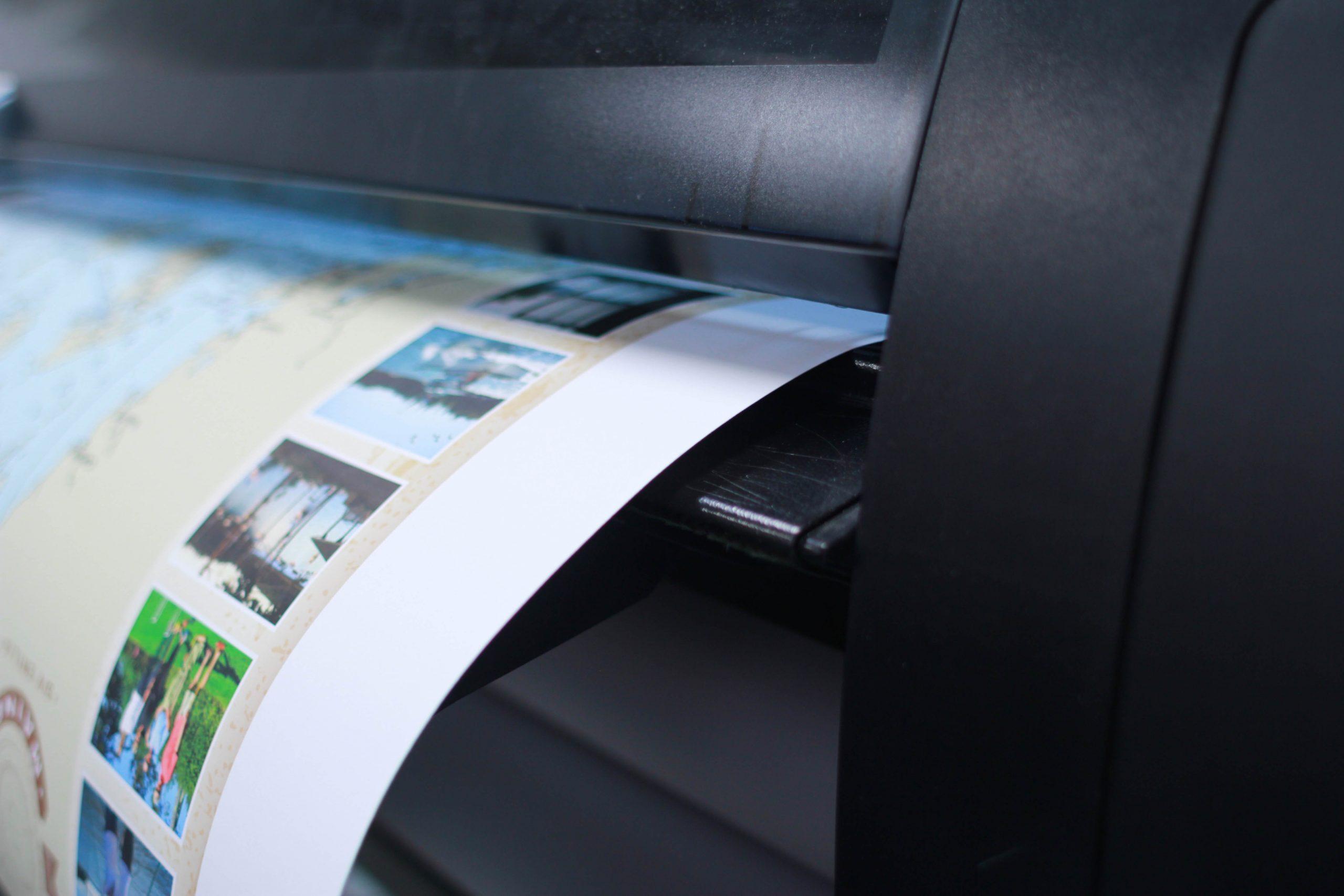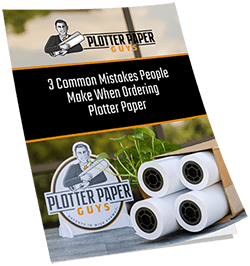When looking for peak performance for high-volume printing, there’s no better option than the Canon Large Format Printer. Large format printers are usually designed for specific printing needs such as poster paper, so you need to ensure you’re using the suitable media to optimize it perfectly.
If you’re curious about everything you need to know about poster paper, we’ve got your ultimate guide. Find out what you need to know here!
The Canon Large Format Printer can print on multiple printer paper types and are compatible with most requirements. You can print signs, graphics, and displays on this printer using paper rolls or other types of printer paper and poster paper. The Canon printer is usually over 24 inches wide, making large printing more straightforward and faster, to suit any professional setting.
Choosing the ideal paper for your requirements can be a guessing game when you’re unsure of what kind of paper would produce the best results for your printing needs. Take information from this guide to know everything about the Canon Large Format Printer Paper.
Different Variants of Paper for Canon Large Format Printers
Multiple types of media are compatible with the Canon printer. Some types of printing you can do on this printer are with:
- Bond Paper
- Premium Coated Bond Paper
- Double Matte Film
- Heavyweight Coated and Uncoated Paper
- Premium Plain Paper
- Artistic Matte or Satin Canvas
- Fine Art Paper
- Photographic Paper
- Polypropylene Banner
Whether you’re looking to mass-print signs, banner stands, photographs, and so on, find that there is an ideal paper type that you can use with your Canon Large Format Printer. You can find a selection of inks, including fluorescent ink, that can make your print more distinguishable against the paper.
Depending on which model Canon Format Printer you’re using to make your prints, they may be ideal for high visual impact posters, photographs, or CAD printing. You can also find printers that have a dual roll system to provide more functionality for your needs.
Knowing the model and make of your printer is ideal when it comes to ordering the perfect media. You might have an older model of the Canon Large Format Printer that can’t handle new types of printer paper, and this is crucial information to know so you don’t damage your printer in the process of printing.
Knowing Different Aspects of Paper
When buying any media type for your printer, you should keep a few specifications in mind to make the selection process much more manageable.
Width: Most Canon Large Format Printers are 24 inches wide, which would require media that is smaller than 610mm/24 inches in width.
Weight: A lightweight paper can weigh anywhere from 80gsm to higher. The traditional copy paper is exactly 80gsm. Fine art paper tends to be a little heavier, starting at 200gsm and going all the way up to 500gsm. Not all printers can handle such heavy-duty paper, so ensure that your Canon printer is compatible with heavier Fine Art paper.
Thickness: Your printer should have a list of specifications that highlight the maximum thickness that it can take. If your paper or media ends up being too thick for your printer, it can cause a printer jam or printhead strikes. Using too thin paper can cause the paper to feed incorrectly, causing damage to your paper and ink.
Length of Media/Paper Roll: Not all printers are capable of taking in a large roll, so you have to ensure that the diameter of the roll is optimal for your Canon Large Format Printer.
Once you consider these aspects, you will be informed enough to make a better choice for the type of printing you require. Each media comes with its own specifications as well, which you have to watch out for.
Finding the Right Paper Type for Your Inkjet Printer
There are many types of paper, and you may get confused about the different finishes available for them. Some of the most popular ones include:
- Uncoated Paper: Used for CAD work and simple office or school processes. It is the ideal paper when you’re on a budget and require constant printing. Depending on the weight, some are more optimized for color printing as well.
- Coated Paper: Good for presentations and report-printing. Prints optimally with colored inks.
- Fine Art Paper (Matte): This is a good tester paper when you’re trying to see if the print is ideal before opting for more expensive and high-quality paper. It is available in different textures and is suitable for card-making as well.
- Fine Art Paper (Gloss): Produce vivid images and are highly reflective. The weight of these papers can go up to 300gsm
- Fine Art Paper (Satin): Optimal paper for photographers. It can come in varying finishes as well, like semi-gloss, high-luster, etc. It can be light at 170gsm or go up to 300gsm.
- Translucent Bond Paper: Used for draft work and drawings, it is very popular with those in creative fields and engineering professions like architects and design engineers.
- Translucent Clear Film: Ideal when you’re looking for transparent images or multiple overlays.
Types of Photo Paper
Photo paper or photographic paper is a type of paper that is coated with light-sensitive chemicals. It is useful when you’re planning on printing photographs or images.
Photo paper is specially designed to provide photos and images with high color density, perfect color gradation, and crisp, sharp results. When you’re planning on printing out photos/images that are high-end, you want to ensure that the quality translates to real life the same way.
You can find photo paper in varying sizes, weight, opacity, and thickness. You can also find different finishes for the photographic paper that include a glossy finish, semi-gloss finish, metallic gloss, and a matte finish, among others.
The weight of the paper can be anywhere from 170gsm up to 300gsm. Choose the best one for your printing needs depending on what kind of quality and finish you’re looking for.
Specialty Bond Paper
When you’re looking for clean, crisp lines and a smooth surface for precise printing, consider opting for bond paper. This type of paper is ideal for presentation mapping, microfilming, general CAD/GIS, or other engineering applications.
Maps, schedules, sketches, and specific types of blueprints can adhere optimally and look striking on bond paper. You can also find affordable variants of bond paper, which are suitable for businesses that require large-scale printing for daily operations.
Bond paper is usually used for heavy-duty government or official documents as well, and can be found in different weights and finishes. Common bond paper variants include 20lb bond paper, 24lb bond paper, economy bond paper, and heavyweight bond paper. You can also find recycled variants of different weights if you’re planning on being more eco-friendly.
Different finishes include glossy, matte, uncoated, high-resolution, and coated bond paper.
Matte-Coated Paper for Wide Format Printers
Not everyone requires a high-end glossy finish to their printing, and when you’re looking for something understated and minimal, getting matte-coated paper is ideal. The finishing prevents the printer ink from looking shiny, and it has a light coating that enhances the contrast in the images.
With a smoother presentation, this is the ideal type of paper to use for making cards, presentations, wrapping paper, scrapbooks, graphic novels, and much more. You can find matte paper in various paper types, including coated paper, fine art paper, water-resistant paper, vinyl, and much more.
Ensure that the thickness and width are optimal for your wide format printer, so you don’t have any printer blockages or end up damaging your printhead.
Using the Canon ImagePROGRAF
The Canon imagePROGRAF is a range of large format printers that are ideal for poster paper and CAD printing. They can be multifunctional or desktop printers that you can get the most of when using compatible inks and paper types in conjunction.
Most of the imagePROGRAF printers use 5-color pigment ink for their printing process and are available in different sizes, going all the way up to 60 inches wide. You can also find printer models in this range with WIFI connectivity and a multifunctional roll system, making printing a breeze.
When you’re looking for the ideal printer paper for this range of printers, consider whether you’re looking to print a poster or something similar. For posters, glossy finishes are recommended, and you can get high-quality bond paper or photographic paper for it as well.
Water-resistant options, along with peel-and-stick paper options, are also available, depending on what your requirements are.
Your Requirements from Your Large Format Printer
When you’re looking for the ideal poster paper for your wide format Canon printer, it’s crucial to consider your requirements before you begin your search. Depending on what you’re planning to print using your printer, the paper and ink needs vary.
It would be best to consider the finish and weight of the paper, as even these tiny details can have a significant impact on your results. When you’re looking for paper to print a banner, it needs to be lightweight and flexible; however, you will require a different type of paper for mass-printing cards.
Depending on your requirement, you can find that many printer paper businesses will be willing to offer a discount or deal when you buy large quantities from them. Keep your Canon Large Format Printer running optimally and producing high-quality prints when you’re using the perfect paper. Contact us and we can help! Visit us at: https://plotterpaperguys.wpts/




